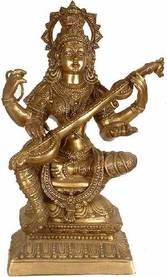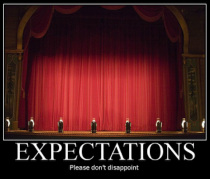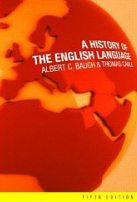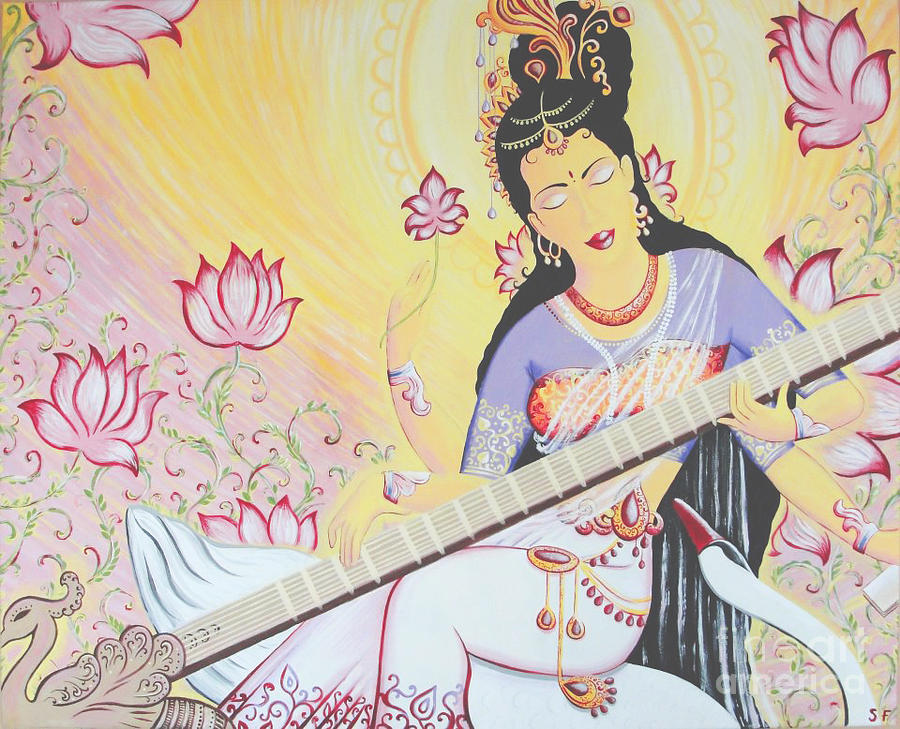 I had a mini break-through this morning that had been building for a while.
As an actor, it took me a long time to learn to relax into roles. I didn't even know it as a technique until Louis and Shakespeare Santa Cruz. Around that time, there was a shift in my acting. An improvement. Father Fred said I grew up out of high school acting. What I did was less affected by what I planned, or thought would be good or funny, and just what happened. I found a more emotionally releasing way of acting, which, whether or it looked better, it felt better.
I have begun to feel the same sort of change in my writing. I've learned that I can't fake it, the best work comes when I'm relaxed and, as my dad say, thinking at the same page as I'm writing. I can feel that metative groove when I'm in it and I can feel it just outside of me when it's close.
I don't know what the solution would be, but I think it might be to warm up before I write. A quick Howard or a few sun salutations. Or maybe even a full on Louis style vocal warm up. I rarely had the patience to do this when I acted, but that really is the problem.
Writing needs to be a matter of listening, and listening needs to be from stillness. I think I'll find stillness through physical conditioning and relaxation.
(this was inspired by a point made in david sheilds' 'reality hunger' that there was a major shift in culture when it became cheaper to print a book than to alter one. printing a new book became the way to make money and the power (as well as profit) fell into the hands of the creators. now, things are shifting. once again altering a book is cheaper than creating one. so, perhaps, the money and power are shifting away from the creators, toward the alters. or, as sheilds says, "now relationships, links, connections, and sharing are [the basis of wealth]. value has shifted away from a copy toward the may ways to recall, annotate, personalize, edit, authenticate, display, mark transfer, and engage a work. art is a conversion, not a patent office. the citation of sources belongs to the realms of journalism and scholarship, not art. reality can't be copyrighted.')
capitalism is the system of controlling and ensuring the circulation of resources by creating a imaginary mediating object, money. it works to motivate people to find resources, shape resources and design them.
it is based on the assumption that everything can be attached to a monitary value. this assumption has been true for most of the life of capitalism.
lately something is changing. lately information has been increasingly de-monied and therefore operates further and further outside of the capitalist system.
mental resources are decreasingly circulated by the forces capitalism can sway. physical resources are still moved and kept moving by money.
information and materials are operating on different systems.
we have no system to control information in the way we can control resources. if we do, we have no name for it. if we have a name for it, nobody has told me.
I just started Theory of the Novel: A Historical Approach (edited by Michael McKeon) and I'm having a hard time with it. It's thick and dense and i'm short on time, but I'm disinterested in categorization as a course of study.
As a writer, I find categorization unhelpful. Perhaps it is a way to teach a number of tools available to a writer, or for a writer to remember them.
Ultimately, however, communication needs to be at the centre of all writing. To borrow an idea from Philip Larkin, writing is a mechanism to transfer an idea from one person to another. There are lots of tools ranging from the language or the objects to publish the writing or performances. Larkin was talking about poetry as a means of transferring an emotion from the poet to the reader, each with a central purpose or a something for the poem to do in the world. I think of my poems as a script for me to read aloud. Novels use the object of a book, with its many words, to transfer more complex emotions and stories. A play is a blueprint to help the actors transfer a concept or a feeling, or simply a story. I, as a writer, have something inside and I want you to know it too. So I write.
Categorization is a game for critics and bookshops owners. For bookshop owners, I get it. Things need to be put on shelves to be sold, and novels are things. (This may be apocryphal, but the word 'novel' is said to come from the novel idea of carrying around your entertainment with you.) For critics, I just don't see the point. It's more about creating a literary in-crowd or influencing how readers see work which would otherwise have to (and be able to) stand on its own. Maybe that makes me a philistine, but I just don't see the point.
I’ve been getting annoyed with reading poetry theory. There’s only so many times you can be told the rule of a sestina or be reminded the difference between an iamb and a trochee. The reading I’ve been doing about poetry… forced rhymes, feminine endings, consonant rhymes, etc, lists of sounds the cultured reader is aware of, classifications of the different types of rhymes… had made my teeth hurt. But I realize I actually love this kind of analysis, it’s just no good on paper. It only works aloud.
I came to poetry through acting Shakespeare. I used to love getting my mouth into Shakespeare. I still do, sometimes reciting my favourite lines to myself walking down the street. For me, the full on acting of it didn’t last in the same way beyond university, and didn’t get much better than certain teachers who had a particular understanding of the way to understand words through your body and act the language through the sounds.
I vividly remember Aldo encouraging us to whisper Sonnet 29 in his acting class so that we could hear the clicking away of the t’s and s’s. Louis told us to sigh our monologues (with relief) making only the vowel sounds in his Linklater Method voice class so we could experience the effect the extremes of the phonetic scale pulling on our throats and lungs. The punctuation in the folio versions tell you where to breathe. Cicely Berry talks about how finding the metre teaches you where to pause and where to drive the meaning. Anna Devere Smith talked about reading a speech over and over again because everything we need to know can be found in a character’s words.
This makes sense to me in acting, even in contemporary prose. I think this is where I learned to write poems, by remembering what it feels like to recite great poetry. I’ll try to remember that. Instead of writing down the lists of t’s used, I’ll whisper it to myself. Instead of counting up all the oo’s and ah’s, I’ll sigh the poem with relief.
Just like blocking on stage should serve as a dumbshow for the subtext, the symphony of clicks and tones in a poem should drawn on the undercurrent of the emotion. But if either of these are done overtly, it ruins everything. Subtlety isn’t enough either. It must be done intuitively.
Smith also said that we all become poets under, often extreme, certain circumstances. Perhaps that is because it focuses us. Maybe I’ll be able to find a deeper fulfillment in writing poems if I see it as an acting exercise.
 My first assignment (one of two) is due today. It is to submit a short poem which, "demonstrates unexpectedness." I reacted two ways initially. I wanted to put my best work forward because it will be the work that my class mates will judge me by. I also resented the idea of unexpectedness because I don't feel that originality is necessarily a worthy goal. Anyways, once i got out of my own ass... A is for apple,
B is for blue,
C is for crab,
D is for do.
E is for elephant
Frollicing in
Grass,
Have
Ideals,
Joke with
Kindness,
Search[1] for truth in the
Madraglass.
N is for nothing
O is for omit
P is for, “Peace out my Brothers and Sisters.”
Q is for quit.
______
[1] ‘Search’ is a know synonym of ‘Look’. Unexpected is essentially a function of expectations. So, before i started writing, I considered expectations. 1. formal expectations. I set up a pattern and broke it. I could have done this more (not rhyming, etc). but the search for look and not finishing the alphabet was enough. if i break the form too much, it's no longer a form and i'm subverting something that doesn't exist. (Of course, the opposite could also be true, because of the assignment something totally un-unexpected could be unexpected). 2. the footnote. i'm so fucking postmodern. 3. to play with rhyming. modern poems don't often rhyme with old fashioned rhyming rhymes. 4. have meaning. the poem means nothing, it's a gibberish poem. i tried to hint at meaning to make the lack of meaning more acute. 'madraglass', as far as i know, is a word i made up. 5. social expectations. I'll be expected to put forward a good poem, if not my best. This is neither of those. I am subverting the exception of quality and the expectation that serious writers will be serious and try to show off. I also feel i'm expected (based on the reading assignments) to submit serious poetry. this poem nothing but is play. Nonetheless, I wrote a new poem. It's the first thing my classmates will see and it's not very good. And it isn't directly contributing to the goal of finding my voice. But i think it's the courageous choice because it isn't me trying to be the best in the class. It's me being me. Silly, playful and not taking poetry too seriously. And i feel it is unexpected. (NOTE: I ended up cutting out the footnote. It was too much.)
What magic is it that binds a group of words into a story? The same magic that binds a group of individuals into a community.
...I have often theorized, come with 2 of the following three: hard word, luck, talent.
Hard word. This is study, developing skills, practice and tenaciously chasing down opportunities.
Lucky. This is finding opportunities which are appropriate to the work that you're working hard on.
Talent. As in innate talent. As in having all the nurses and doctors enraptured before the umbilical cord is cut. If this exists, it is exceedingly rare.
So there it is. Hard work and luck. Of course, this is only theoretical. I haven't exactly achieved this kind of success... but I'm hoping I can keep up the hard work long enough to get lucky.
New book. Postmodern Fiction (i can't remember who by, she or he is a very good writer).
The thesis is basically as follows. Modernists are concerned with works of epistemology (questions of expression, most intimately within thought, usually on a personal level); postmodernists are concerned with questions of ontology (questions experience, what we are, often on a societal level). Writers can cross back and forth between then, or even present both layers in the same work.
The basic assumption of this thesis is, however, that experience and expression are essentially different. It would be a hell of a good book that demonstrates them as the same.
I have a lot to say. I've been reading non-stop about chauvinistic modernists and contemporary feminists. Good food for thought, lots of ideas about what I want to do and what I want to avoid. I also have a few words I want to say on work-life-work balance.
Today, I'm feeling a bit under the weather (though enjoying Ibsen's BRAND). I got my second rejection for my novel. They didn't even want to read the whole thing. It's only two rejections, and its an agency I wasn't too too bothered about. But it still sucks. I chose an idea to focus a lot of effort on and stuck with it long through to the last dot and letter, and now I have to sell it. Now I have to find out if I made the right decision. And then, either way, I have to start over again.
0/2
 I've been reading A History of the English Language (fifth edition). It's written as an academic survey of, as the title suggests, the history of the english language. Lots of information. Not a lot of flowers. Balanced as it can be. Previously, my experience in reading about the english language was The Adventure of English by Melvin Bragg. Before that, my understand of english as a language came only from conversations, stories from other people and reflections of my own. The theme was always the same, english is great. I was a language patriot. Like Bragg was in his excellent book, I was an english excectionalist. Still am, really, because english is great. It has a massive lexicon. It's not prescriptive. It's flexible. It takes on new words from other traditions. It's the last bit i had never really thought about. I blindly assumed it was a virtue. Maybe it is. But, i've recently been swayed by (see photo on right) that the opposite is true. When a language doesn't have a word for something, there are two options. Modern english usually (though not exclusively) steals. Fiancée is one example. Old English, apparently, did something else. It did what the germans do. It combined words already in the language. Officially, i gather, this phenomenon is called 'self explaining compounds'; I prefer to think of them as double barrel words. A famous one from Old English is ' whale road'. Another one is ' sea wood'. I've always been fond of ' word hoard'. I love this. It's poetic in a way thievery is not. Words so easily lose their meaning. The more we use the word, the less meaning that word carries with it. Words like 'art' and 'religion' and 'love'... I don't know where they come from, but they are worn out. Our usage in modern english reveals nothing intrinsic about the word, the concept or the speaker. Can I suggest double barreling them? 'Made beauty.' 'Spirit group.' 'See another.' Perhaps not flawless examples, but they reveal what I think of art, religion and love. We can make up the double barrels as we go along, change them every day, even do a triple barrel from time to time. But, as speakers, writers and creatures reliant on culture, we have a responsibility to ensure concepts essential to us never loose their meaning, context or poetry. Old English ended, roughly, when the french took over. The french, to paraphrase steve martin, have a different word for everything. Hence, I will conclude with advice. If you go do France, don't double barrel their words. They don't get it and they don't like it.
|




 RSS Feed
RSS Feed